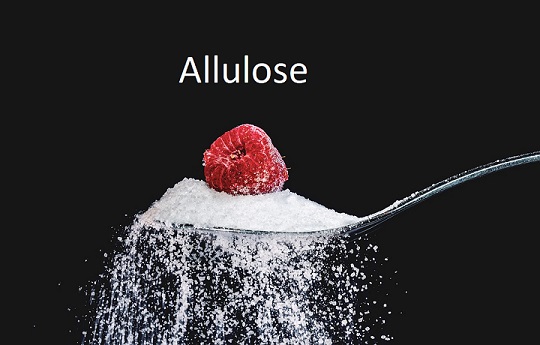In the ever evolving landscape of sweeteners, a newcomer has been making waves – Allulose. This naturally occurring sugar substitute is gaining popularity for its unique properties and potential health benefits. In this blog post, we will explore what it is, its benefits, and any possible risks associated with its consumption.
What is Allulose?
Allulose, also known as psicose, is a rare sugar that is naturally found in small quantities in certain foods like wheat, raisins, and figs. Chemically, it is a monosaccharide, or simple sugar, and is classified as a low-calorie sweetener. Allulose has a similar taste and texture to table sugar (sucrose) but with approximately 70% the sweetness.
Benefits of Allulose:
1. Low Caloric Content: One of the significant advantages is its low-calorie content. While table sugar contains about 4 calories per gram, Allulose provides only 0.4 calories per gram. This makes it an attractive option for individuals looking to reduce their calorie intake while satisfying their sweet cravings.
2. Suitable for Diabetics: Allulose does not impact blood sugar levels, making it a safe choice for people with diabetes. Unlike regular sugar, it is not metabolized by the body, so it does not cause spikes in blood glucose or insulin levels. This characteristic makes it an appealing alternative for those managing diabetes.
3. Tooth-Friendly: Unlike some other sweeteners, Allulose does not contribute to tooth decay. Harmful bacteria in the mouth cannot ferment Allulose, leading to a reduced risk of cavities and overall better oral health.
4. Digestive Friendly: Allulose is not fully absorbed by the digestive system, which means it contributes fewer calories and does not cause digestive distress in most people. While some sugar alcohols can cause gastrointestinal issues, It is generally well-tolerated.
Possible Risks and Considerations:
1. Excessive Consumption: While Allulose is considered safe for most people, consuming it in large amounts might lead to digestive discomfort, similar to other sugar alcohols. Moderation is key to avoiding potential issues.
2. Allergic Reactions: Although rare, some individuals may have an allergic reaction to Allulose. If you experience symptoms like itching, swelling, or difficulty breathing after consuming Allulose, it is crucial to seek medical attention immediately.
3. Impact on Gut Health: Research is still ongoing regarding the effects of Allulose on gut health. Some studies suggest that it might influence the composition of gut bacteria, but more research is needed to fully understand its implications.
Allulose presents an exciting opportunity in the world of sweeteners. Its low-calorie content, diabetic-friendly nature, and dental benefits make it a promising option for health-conscious individuals. However, like any other food additive, it should be consumed in moderation. As research continues, we can expect to learn more about this intriguing sugar substitute and its role in our diets. Whether you’re managing diabetes, watching your calorie intake, or simply exploring new healthier options, Allulose might just be the sweet solution you’ve been looking for.
